Making Effervescent Encounters
Food Art Research Network and State of Concept, Athens invite you to a workshop that explores processes of collective fermentation with artist Grace Gloria Denis
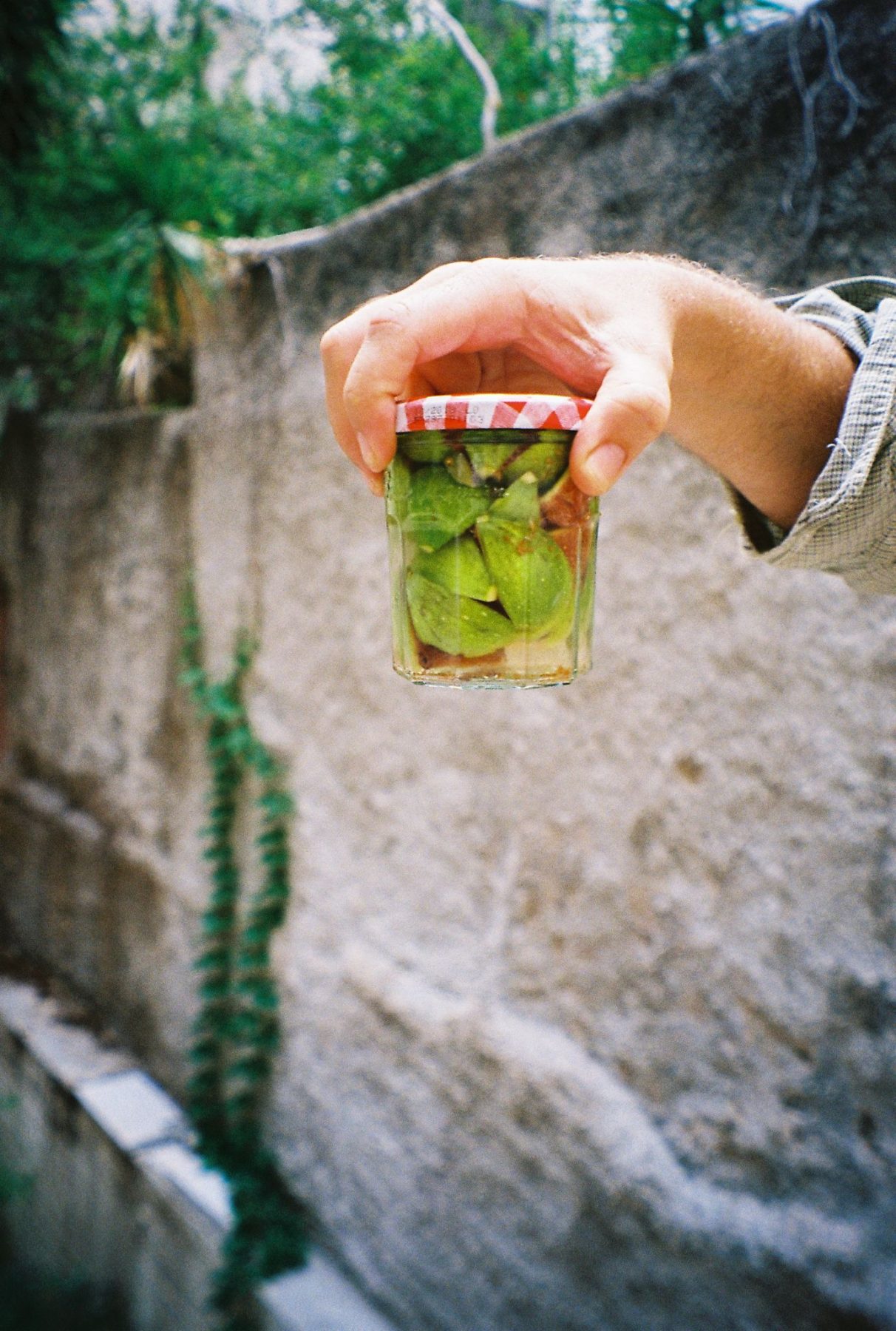
Food Art Research Network and State of Concept in Athens, host a workshop that explores processes of collective fermentation.
Over two hours we engaged in a collective inquiry led by artist Grace Gloria Denis into microbial transformation, examining it as a generous model for contemplating flux and the porousness of collective bodies.
Fermentation catalyses reflections on transformative processes and their innate relationship to reciprocity, care and mess. Ferments are saturated with speculations of microbial economies of exchange and are contingent upon shifting conditions and spontaneous encounters.
The workshop takes Lauren Fournier’s proposals about fermentation as a material practice and metaphor: “through symbiotic cultures of feminisms, fermentation prompts fizzy change with the simultaneity of preservation and transformation, futurity and decay.”
The workshop explores the collective as a fermenting body, an organism that possesses the capacity to digest matter, contend with difference, and witness transformation. Beginning with a listening exercise that followed a process of fermenting mezcal we lay in the midst of an exhibition by the artist Ahmet Ohgut and felt the connection between the bacterias in the mezcal and the wild ferments that live in our own bodies. We used lacto fermentation techniques to process fig ferments on the terrace of the gallery, and shared stories of the diverse and fizzy practices of people we met.
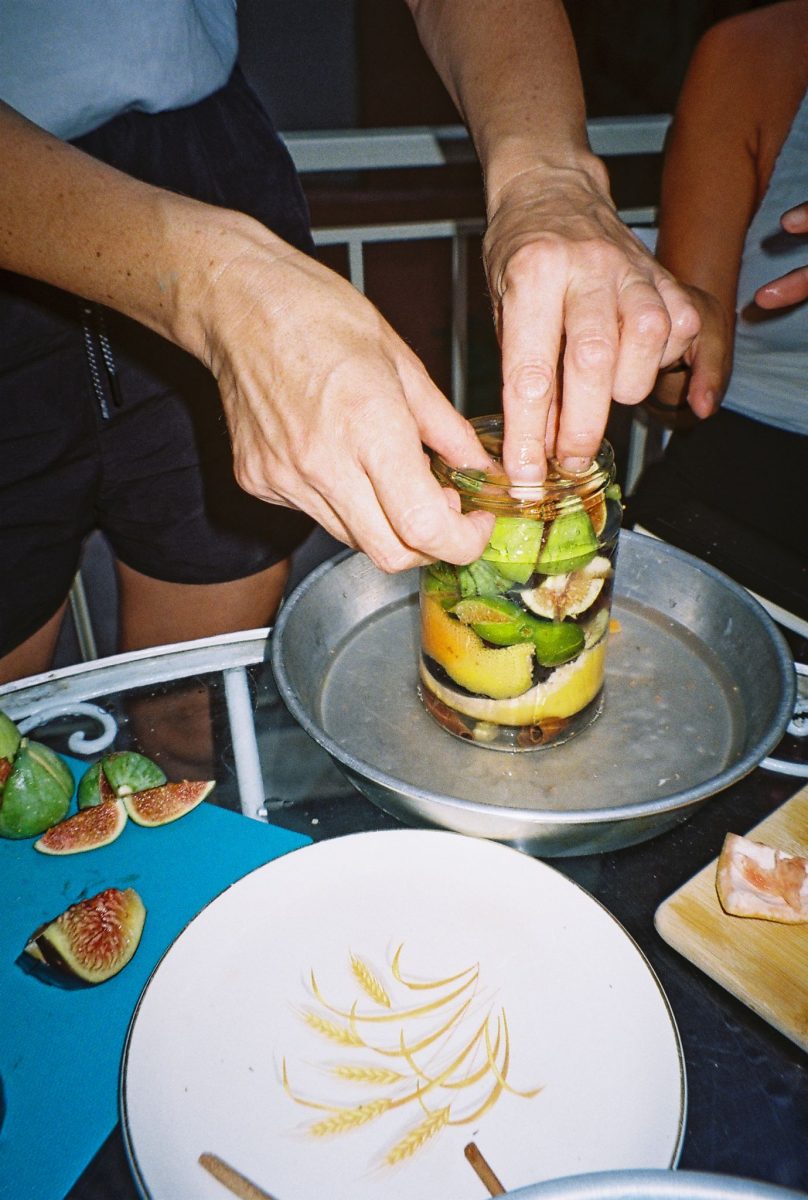
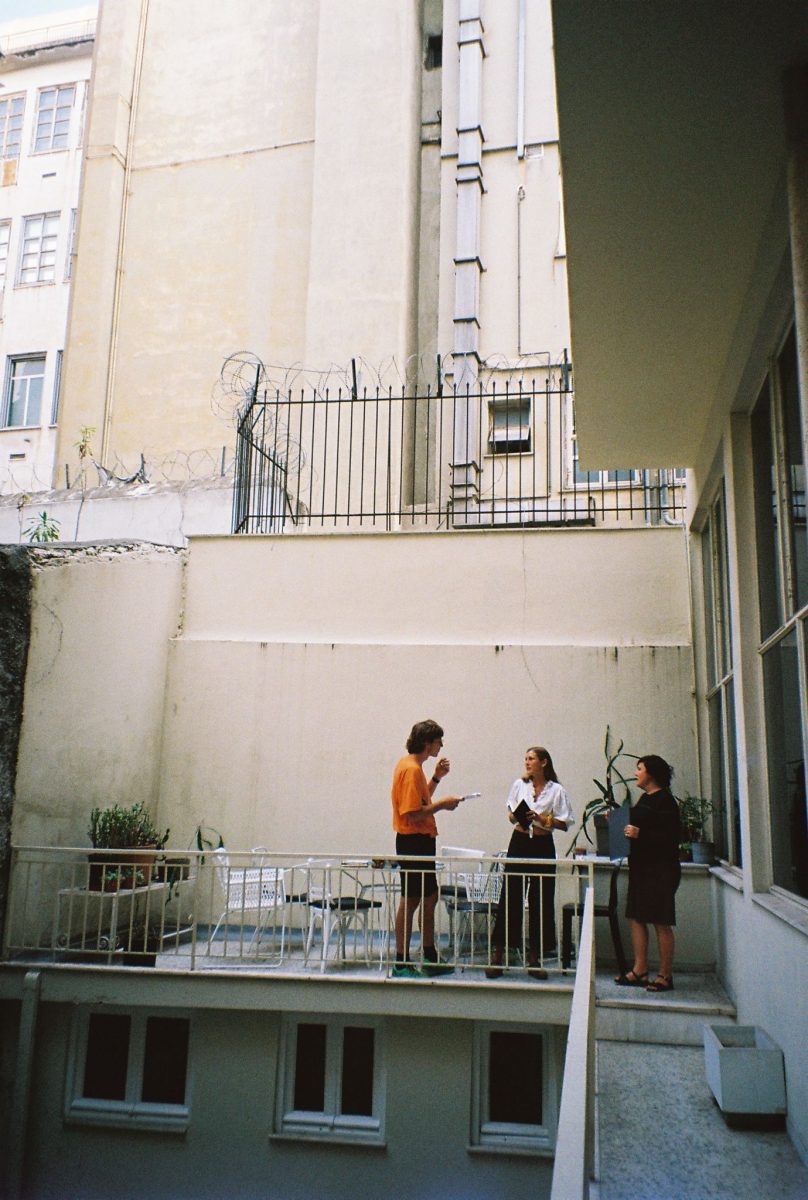
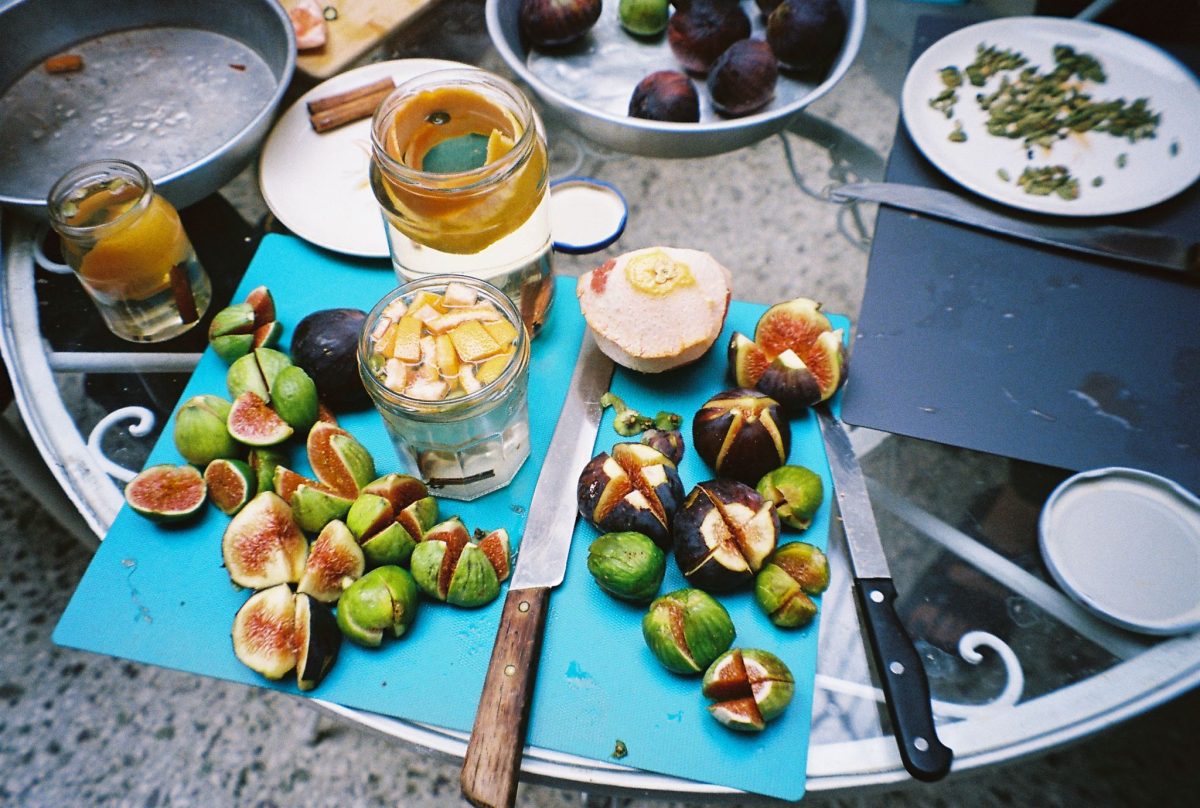
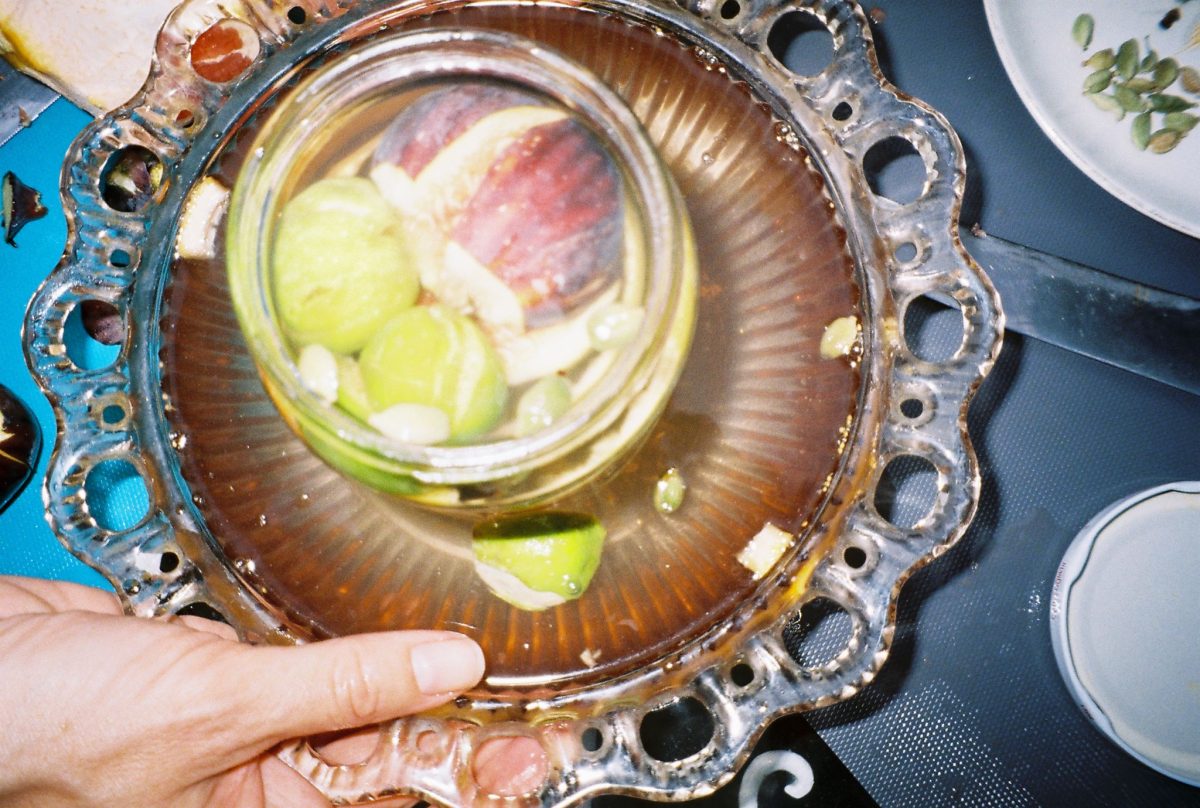
-
Credits and Supporters
Making Effervescent Encounters is presented by Food Art Research Network and State of Concept, orchestrated by member of the network, Grace Gloria Denis with support from Madeleine Collie. Thanks to Konstantina and Iliana for hosting us in Athens.
Making Effervescent Encounters is part of Food Art Research Network’s program throughout 2023-24, initiated by Madeleine Collie and supported by Australia Council for the Arts and Monash University Curatorial Practice.
And thank you to the ever generous Margaux Schwab for accompanying us and taking photos.
-
Recipe #1
Wild Fig Ferment
- foraged figs
- cardamom
- cinnamon
- grapefruit
- salt
- water
Sit in a circle and cut figs while talking about fermentation practices in your life. Make a salt and hot water liquid and wait for it to cool. Press cut figs into very clean jars along with cinnamon, cardamom and grapefruits. Use your hands.
When the water is cool pour it over the fruits and spices and close the lids, leaving very little air and making sure the figs are submerged.
Leave it for at least a week, enjoy figs and use the liquid to invent incredible cocktails.
-
Recipe #2
My aunts are the custodians of our family’s culinary heritage, diligently preserving the traditional knowledge and generational expertise that have been passed down through the years. Each visit to their home reveals new jars of fermented foods, pickles, jams, and spices.
For them, food preservation is not just a practice but a necessity, especially as they prepare for the winter months. Despite living in a small village in Lebanon, near a city with accessible supermarkets, they adhere staunchly to the principles of seasonal eating. They understand that nature’s bounty is available only briefly each season and believe in preserving these gifts to maintain a varied diet throughout the year.
In early March 2024, I visited them to catch up and explore their latest culinary creations. To my astonishment, I found new jars of compote, a testament to their ingenuity. The recent focus of their preservation efforts was the apricot tree in their garden, which, when fully ripe, becomes a target for snails. Rather than resorting to chemical interventions, they harvest the apricots prematurely and submerge them in sugar syrup, a clever solution to a common problem.
They shared an interesting discovery with me: leaving compote unrefrigerated initiates fermentation due to natural yeasts on the fruit and in the surrounding environment. This accidental fermentation process transforms the sugars into alcohol and carbon dioxide, altering the flavor profile and introducing a subtle alcoholic note. This transformation not only extends the life of the fruit but also provides a unique twist to their late-night poker parties with neighbours, showcasing their resourceful and adaptive approach to food preservation.
Apricot Compote Recipe (Poker Edition)
I.Ingredients
Apricots
Sugar
Cold waterII.Instructions
- Prepare the apricots by cutting them into quarters. While doing so, remove any damaged or spoiled parts to ensure only the best quality fruit is used.
- Create the sugar syrup by mixing one cup of sugar with two cups of cold water. Stir the mixture until the sugar is completely dissolved.
- Sterilize your jars to ensure they are free from any bacteria or impurities.
- Place the quartered apricots into the sterilized jars, arranging them to maximize space.
- Pour the sugar syrup over the apricots until they are fully submerged. Ensure there are no air pockets by gently tapping the jar on a flat surface.
- Seal the jars tightly and store them in a cool, dark place away from direct sunlight. Allow the compote to sit for at least one month, giving time for the flavors to meld and the apricots to soften.

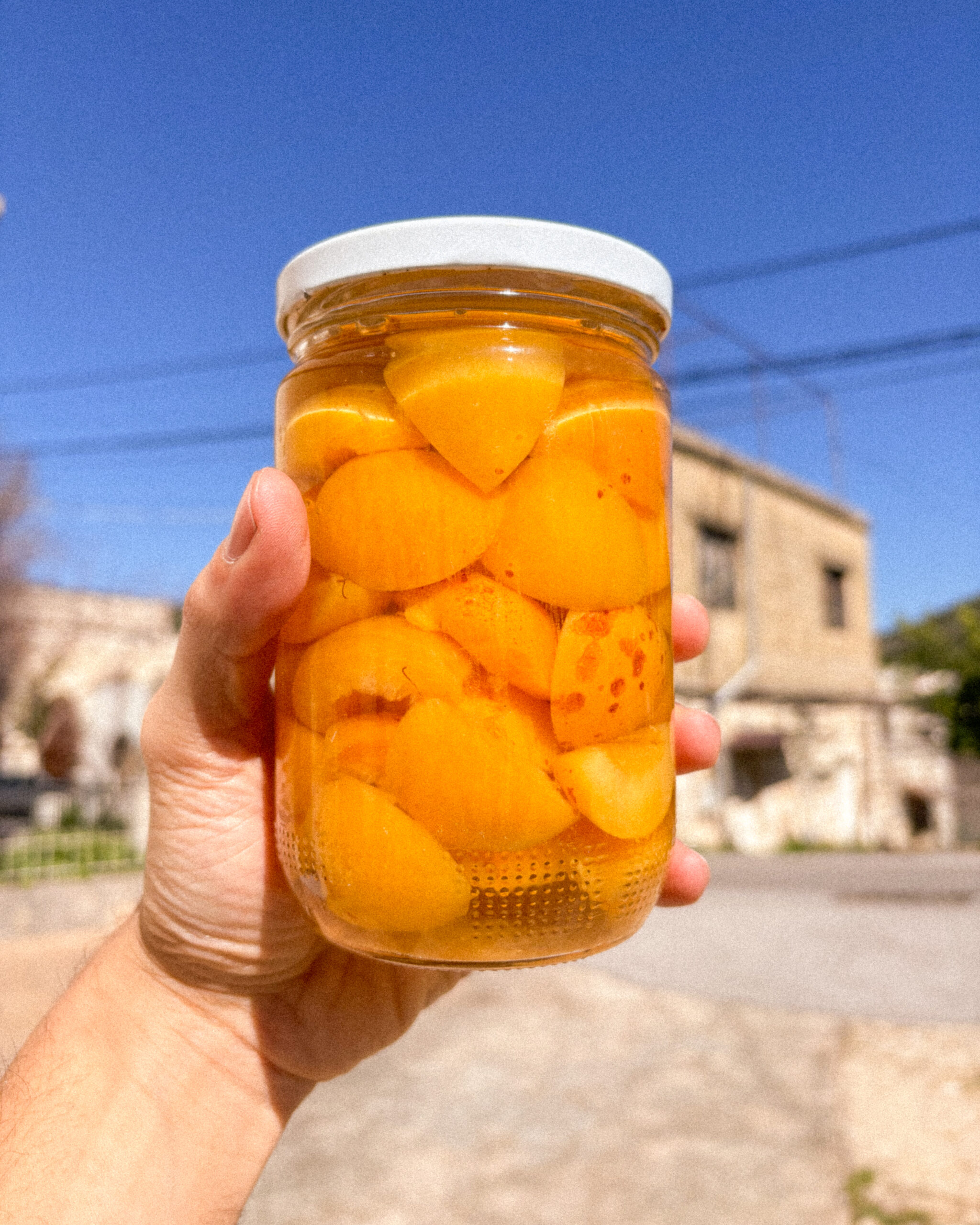
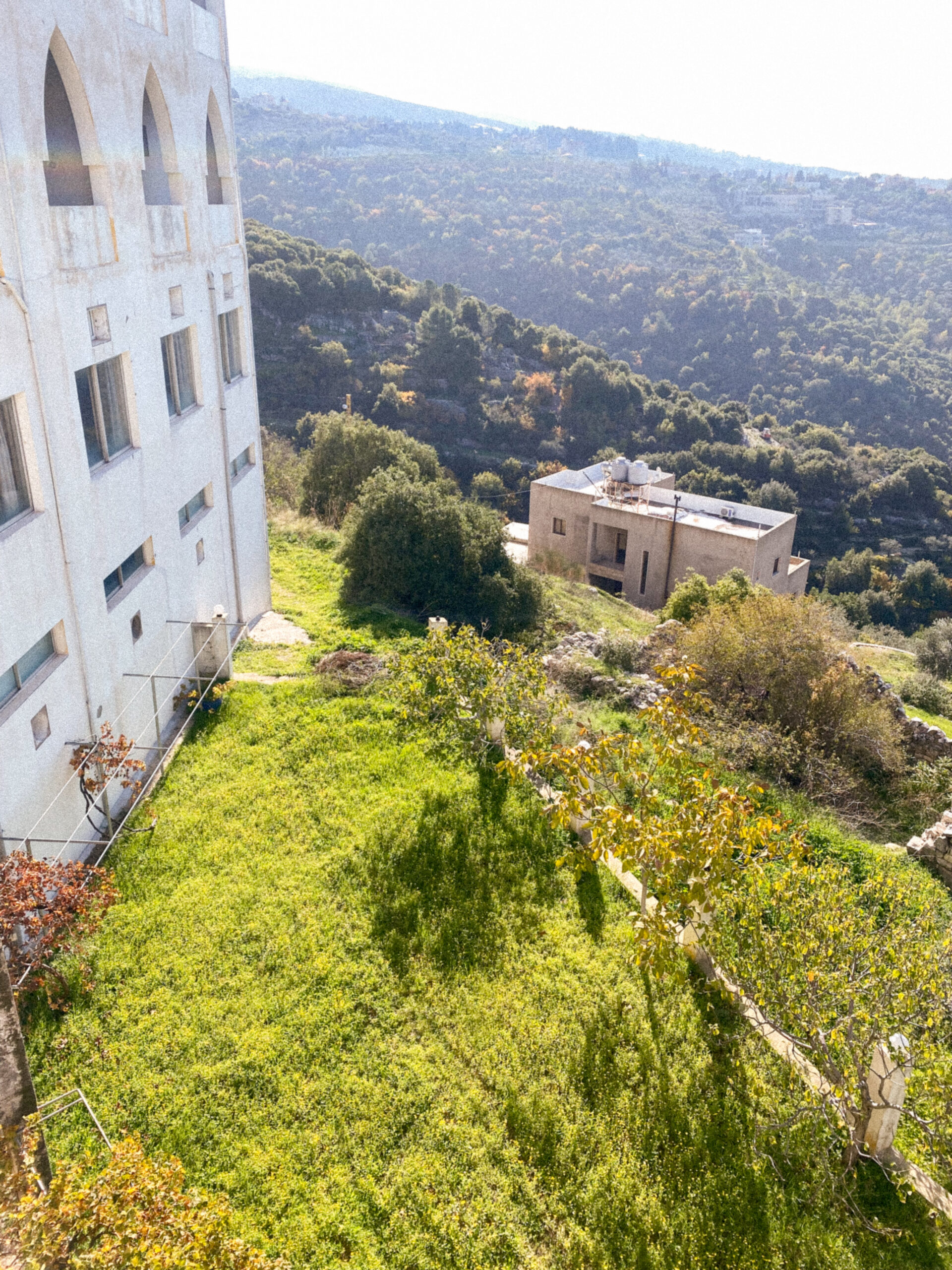
The workshop took place on Thursday 21 September, 2023, 5:00-7:00 PM. We are collecting the fermentation recipes and they will be available here.